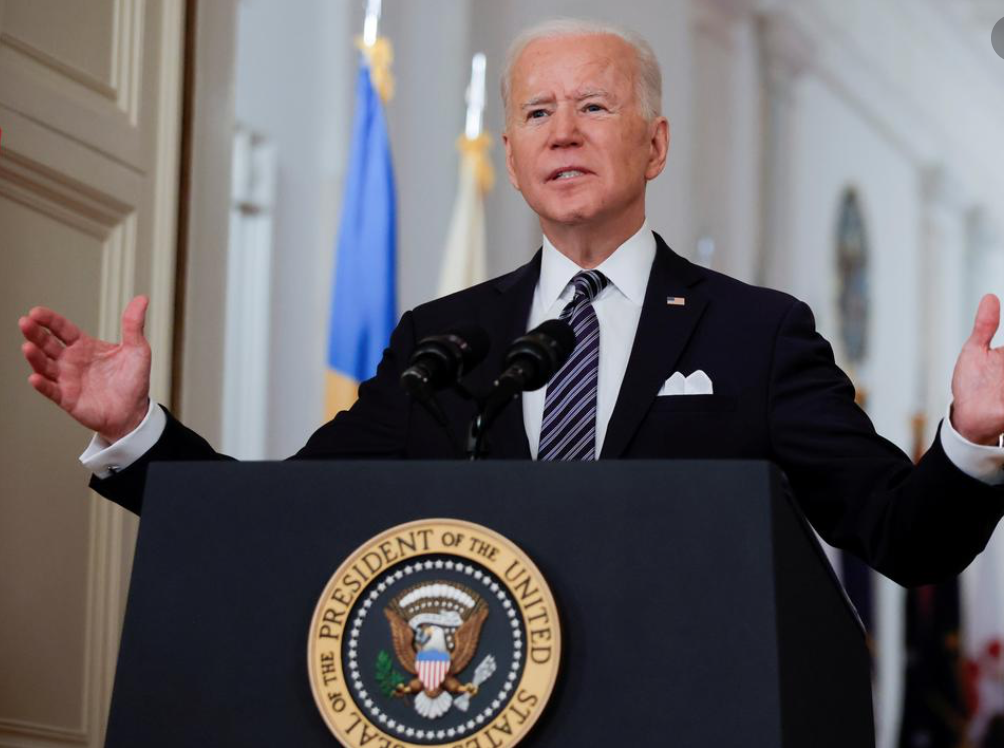New Challenges, Old Business: Two Months Into Biden’s Presidency, Planned Policy Proposals Compete With Unexpected Challenge For Precedence

Image Courtesy of Grand Forks Herald
By Justin Lamoureux
It’s official: Two months have passed since President Biden took office. It goes without saying that a lot has happened across the country during his early tenure; this week, in particular, has been particularly eventful for the new administration. Perhaps most importantly, the nation has exceeded 100 million vaccinations – In doing so, the U.S. exceeds Biden’s signature goal for the first 100 days of his presidency well over a month ahead of schedule. On a slightly different note, however, the administration has been working to address an unfolding challenge, while simultaneously continuing to lay the framework for existential policy initiatives.
The Biden administration incited controversy this week after sharing video footage of migrant facilities – both of which house large numbers of undocumented children – in Texas. The release of such videos came as a result of pressure for increased transparency regarding the conditions at migrant centers. Footage depicts unaccompanied minors wearing masks in a tent facility while they receive food and medical checks. Many of these same children were also sleeping on the floor, wrapped in foil blankets. Younger migrants were seen in playpens, and running around outdoors; neither age group had access to toys, or other objects (e.g. playground equipment), to occupy themselves.
The administration has not allowed independent press coverage of these facilities, citing protocols related to the COVID-19 pandemic. When DHS Secretary Alejandro Mayorkas visited a border facility in El Paso (along with a delegation of congressional and cabinet officials), the trip was closed to reporters. President Biden – who has evidently seen these photos, and received regular briefings on the situation – told the press that he would visit the border “at some point.”
Despite maintaining a relatively low profile concerning the situation along the border, President Biden seems to remain busy. Namely, his administration has been working to develop an extensive economic plan to further his political agenda. Worth an estimated $3 trillion, this package would be marked by three primary objectives: Boosting the economy, reducing carbon emissions, and narrowing economic inequality. This would include a giant infrastructure package that would likely be financed, in part, through tax increases on corporations and wealthy Americans. Essentially, it builds off the $1.9 trillion economic aid package that Biden signed into law earlier this month.
The Biden administration has yet to provide substantial information regarding the logistics of this package, but it has been suggested that Congress may choose to break it down into multiple packages. The first would address infrastructure, while the second might focus on “people-focused proposals,” such as free community college, universal pre-kindergarten and a national paid leave program. In addition, documents indicate the plan might dedicate $1 trillion to the construction of roads, bridges, rail lines, ports, electric vehicle charging stations, and improvements to various fields of the private sector. The ultimate price tag could approach $4 trillion, as the package includes several tax incentives (such as credits to help families afford childcare and to promote energy efficiency in existing buildings). Despite extensive speculation, the White House remains evasive regarding the specific details of this package. Press Secretary Jen Psaki has acknowledged that President Biden and his administration “are considering a range of potential options” to advance the interests of working families. “… any speculation about future economic proposals is premature, and not a reflection of the White House’s thinking,” she noted. President Biden may only be on the cusp of his first press conference, but behind the scenes, his administration is bustling with activity. Growing pressure to address the largest influx of border crossings in recent history, and the development of a comprehensive economic agenda, have made this a consequential week in presidential politics. Regardless of the outcome behind each initiative, one fact remains all but certain: As voters’ attention shifts away from the COVID-19 pandemic, and towards traditional issues such as immigration or the economy, how these evolve could have far-reaching consequences for Biden’s political feature.








